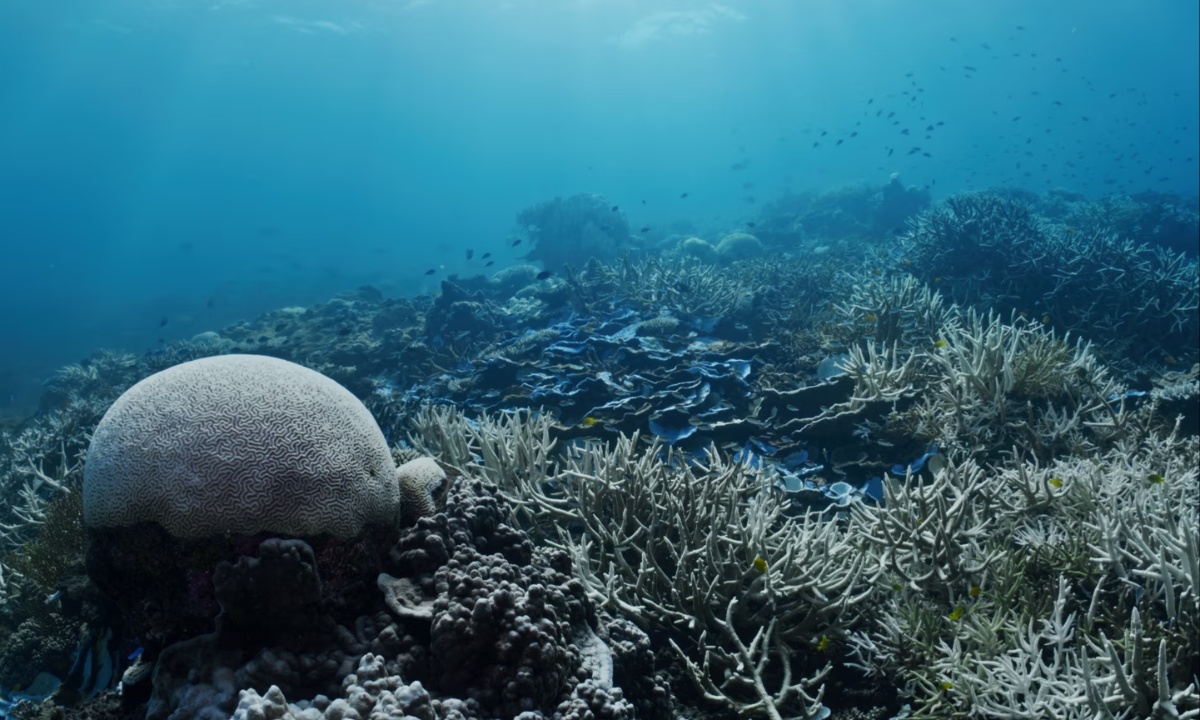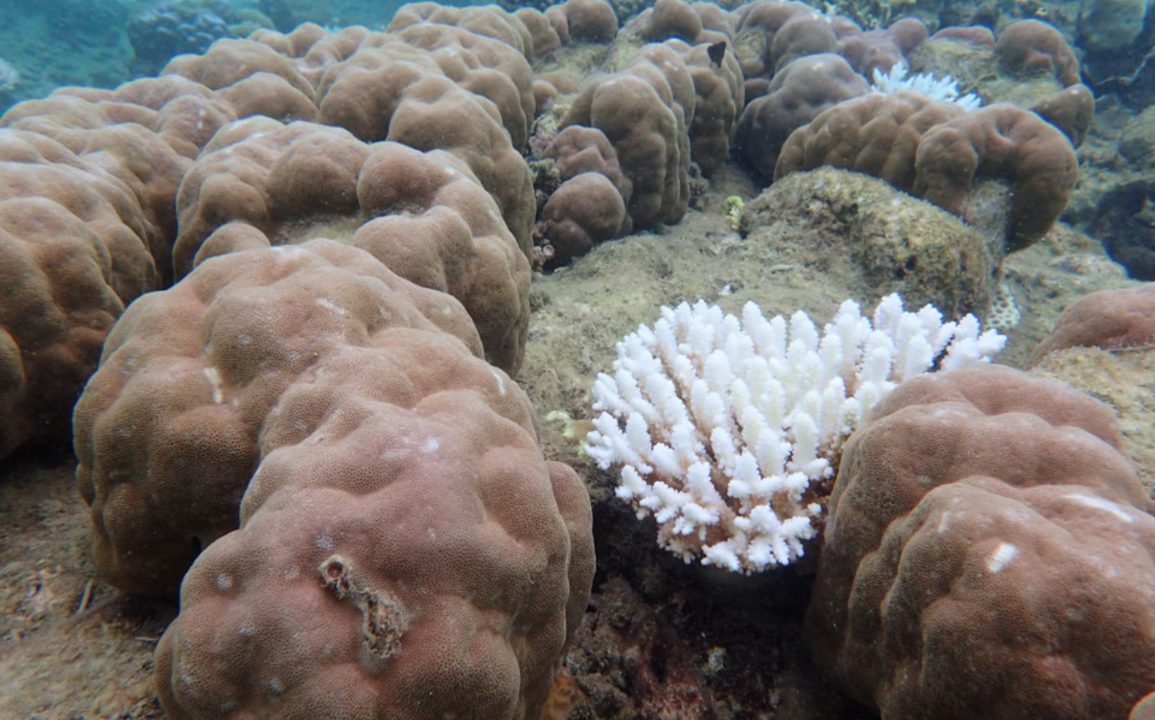Recent surveys reveal severe coral losses in the northern Great Barrier Reef following a summer marked by extreme heat, cyclones, and flooding. According to the Australian Institute of Marine Science (AIMS), coral cover in areas such as Cooktown and Lizard Island dropped by over a third, the largest annual decline recorded in nearly four decades.
Dr. Mike Emslie, who leads AIMS’ monitoring program, described devastated reefs like Linnet Reef as resembling a “graveyard of corals,” with algae-covered structures replacing vibrant ecosystems. This damage underscores the widespread impact of recent climate-driven events.
In-water surveys of 19 reefs between Cairns and Cooktown showed coral cover declines on 12 reefs, ranging from 11% to a staggering 72%. This assessment is the first official measure of last summer’s mass coral bleaching event, part of a global trend that saw heat stress bleach over 70% of the planet’s corals.
Rising ocean temperatures, primarily fueled by the burning of fossil fuels, are the primary driver of such events. Emslie emphasized that climate-change-driven heat stress was the main cause of coral death, compounded by cyclones and flooding that brought freshwater runoff into reef waters.
Particularly vulnerable were branching and plating Acropora corals, which had contributed significantly to recent growth but are highly susceptible to bleaching. Initial surveys in the southern reef, where heat stress was highest, are ongoing, with scientists expressing concern over what further data may reveal.

Between 80 and 100 reefs remain to be surveyed by mid-2025. The UNESCO World Heritage Committee, which has avoided listing the reef as endangered, has urged transparency in reporting coral mortality data.
Preliminary data indicates variability in coral losses, with some areas like Lizard Island-Cooktown experiencing coral cover drops from 31% to 19%, while reefs near Innisfail remained stable. Outer shelf reefs appeared less affected, and some species displayed greater resilience.
However, overall coral cover remains moderate at 10% to 30%. Despite localized survival, Emslie warned that mass bleaching, once rare, now recurs every few years due to escalating global heating, with the 2024 bleaching marking the fifth such event since 2016.
Environmental advocates like Richard Leck of WWF-Australia stress that the reef’s ability to recover is nearing its limit. Repeated bleaching events are pushing the ecosystem toward a tipping point.
To safeguard the reef’s future, Leck called for Australia to adopt ambitious emissions reduction targets, halt new fossil fuel projects, and support a global treaty to phase out fossil fuels entirely. Without urgent action, the Great Barrier Reef’s resilience may not be enough to withstand the compounding effects of climate change.

